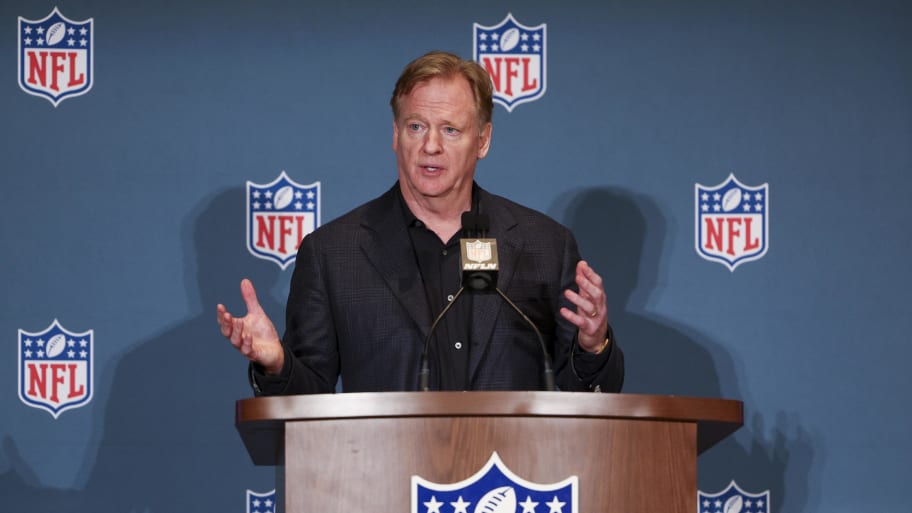
The NFL has long held fast to the notion of individual ownership of its clubs. The league’s mode of operations has always featured a face for every member, that person at the table representing the franchise as a partner in all league business. And, for the foreseeable future, that will not change. What will change, however, in this age of exploding franchise valuations, is the source of the funding behind the owners.
The problem: skyrocketing franchise values
In 2018, the Carolina Panthers sold for a then record price of $2.275 billion. In ’22, the Denver Broncos sold for twice that amount, $4.65 billion. And last year, the Washington Commanders fetched a staggering $6.05 billion. Franchise values have almost tripled in a span of five years.
It has been well documented that new Commanders owner Josh Harris, a multibillionaire and principal owner of the NHL’s New Jersey Devils and the NBA’s Philadelphia 76ers, had a very difficult time putting a group together to meet that number.
As a Washington, D.C., native, I heard from a friend who was approached—with a prospectus and a pitch deck—about investment in the Commanders. He called me with a question: “Andrew, it looks like they want about $200 million, and all I see that I get is some decent tickets and a parking pass. Does that sound right to you?”
I said that it did. That $200 million, for which my friend would have to gather an investment group of his own, represents about 3.33% of the franchise price. That’s not going to get him much in terms of front-facing ownership or bragging rights to his friends. But what it would get him, I said, is a lucrative exit. When, hypothetically, Harris sells the team in 20 years for $24 billion, his $200 million would then be $800 million. He listened but chose not to invest.
This need for capital from investors with no tangible control has become an issue. NFL franchises are among the scarcest of resources, and prices reflect it. And with media deals that continue to defy economics and the relatively new engagement of legalized sports betting, it is hard to see a tipping point. There are only so many multibillionaires out there to not only be the front-facing owners of these teams, but to support that ownership with hundreds of millions and no true ego benefit in doing so.
The solution: private equity
Private equity and other institutional money can provide the liquid investment that principal owners need to help fund these massive purchases. The NFL, holding fast to its cherished model of individual ownership, has been resistant to this source of funding; that resistance has separated the league from all major American sports leagues. But that resistance is coming to an end.
Last week, at the Allen & Company conference of business leaders, commissioner Roger Goodell told CNBC that, for the first time, he is open to private equity investment in NFL franchises. He remarked, as I have noted before in this space, that there have been committees discussing the topic and that there is an intention to modify NFL ownership policies by the end of the year to allow for this. As with all things with the NFL, however, there is a caveat.
The NFL would, per Goodell, limit private equity investment to no more than 10% of the purchase price. While that would be a big change for the NFL, the proposed limit would lag well behind other leagues that were earlier adapters to private equity investment.
Currently, the NBA, NHL, MLS and MLB all allow for up to 30% of ownership capital from private equity investment. Further, MLB allows for a maximum of 15% of a franchise owned by a single private equity firm; the other leagues allow for up to 20% ownership by a single firm.
According to PitchBook, 62 major U.S. sports teams have “connections” to private equity money. That includes 20 NBA teams, 18 MLB teams, 14 MLS teams and 10 NHL teams.
Obviously, other leagues have become comfortable with private equity money, and vice versa. Leagues know the teams need the cash to fund these burgeoning valuations; and private equity firms are happy to place their money into these stable investments, which are growing at a rate that exceeds most other investments, including the stock market.
Now, albeit with a more limited entry, the NFL is realizing it needs to join the party. Its model of front-facing individual owners sitting around owners’ meetings making all the important league decisions will not change, but the money behind these owners will, and it has to. It has become commonplace in other American sports leagues. European sports have also accepted this investment for some time. Heck, even the Big 12 Conference and Florida State University are exploring it!
It is a necessary funding supplement for the NFL, with its teams having the largest valuations of any of these properties. And finally, the league is jumping on board.
As I continuously say, the money always wins.
This article was originally published on www.si.com as NFL Is Late to the Party Finally Accepting Private Equity.







